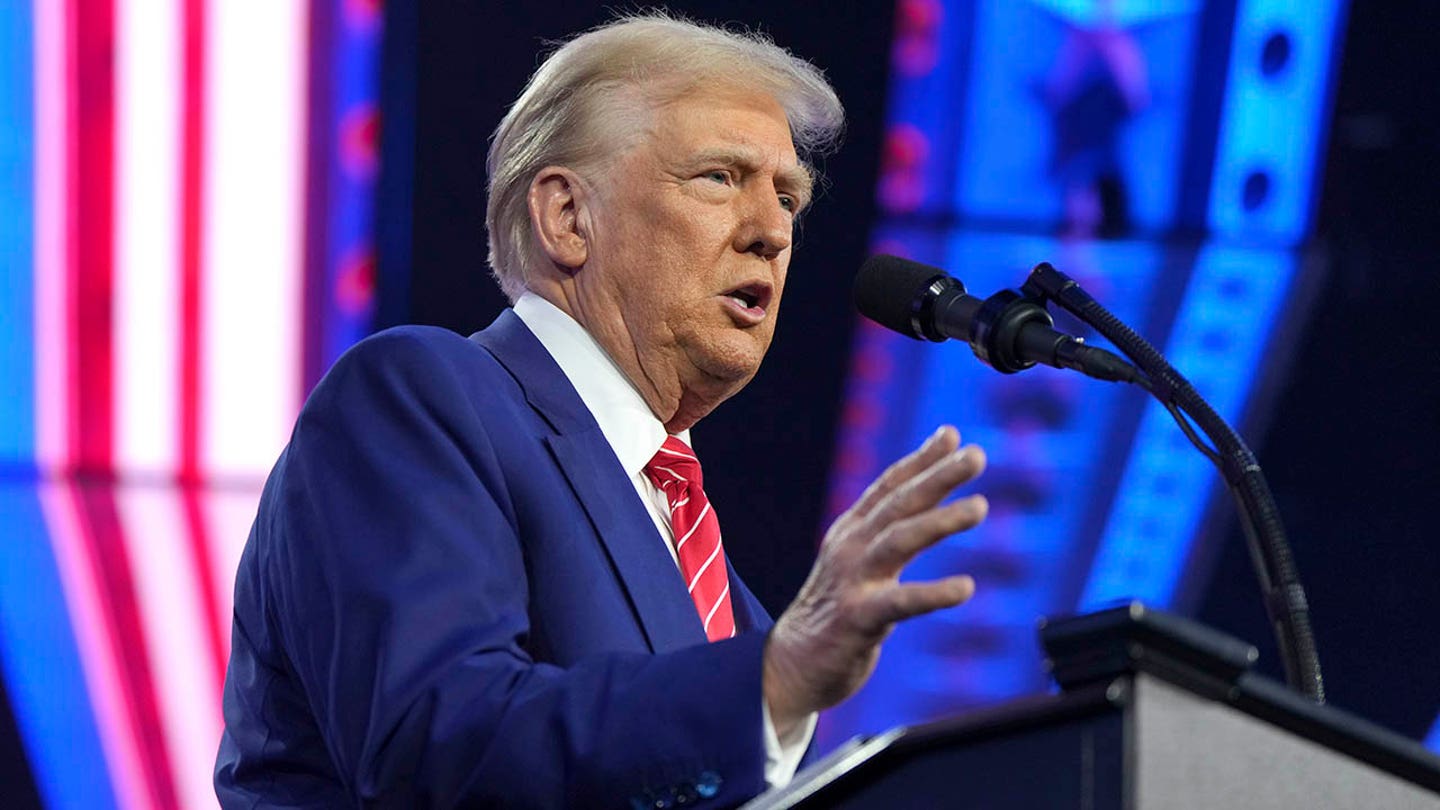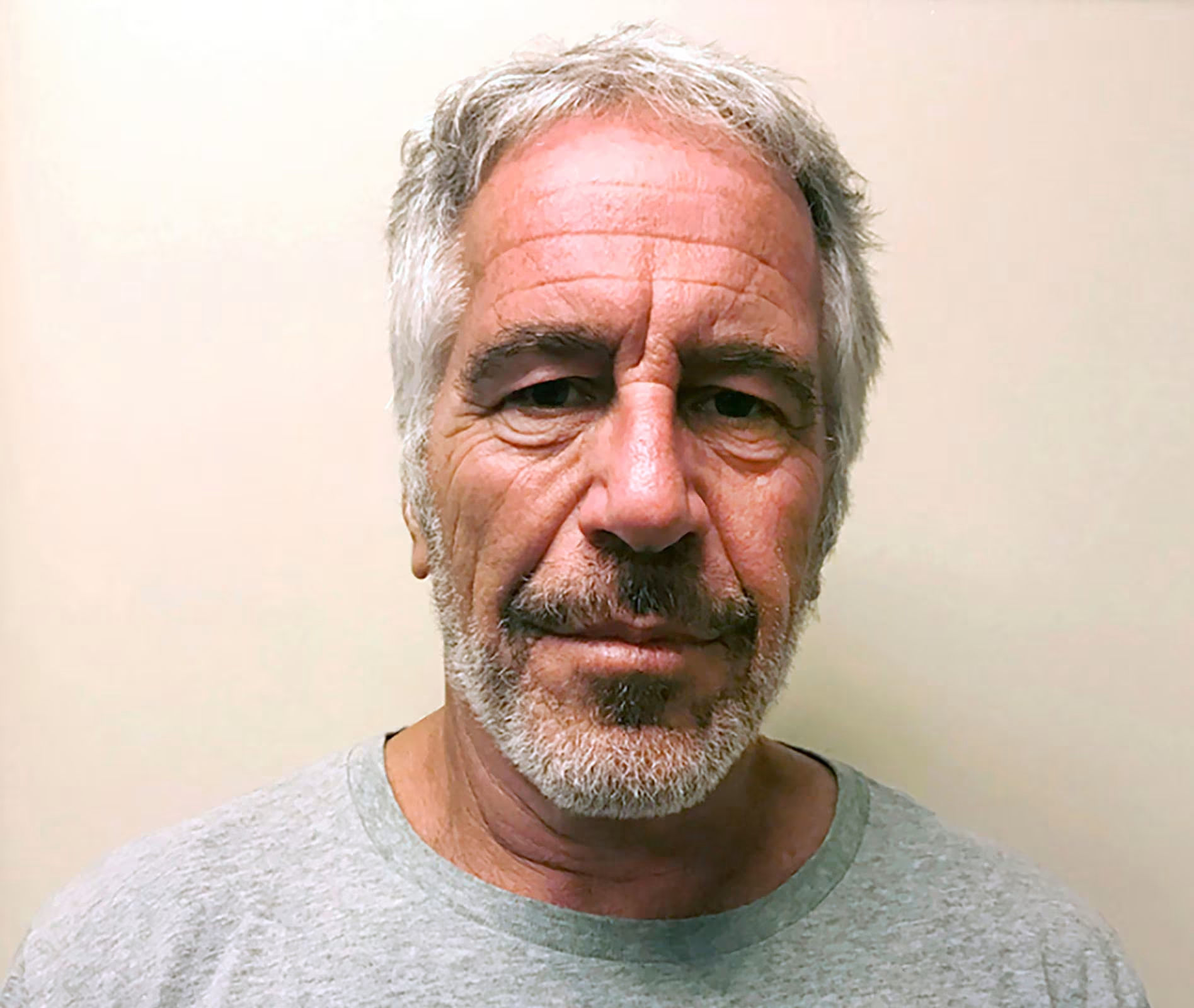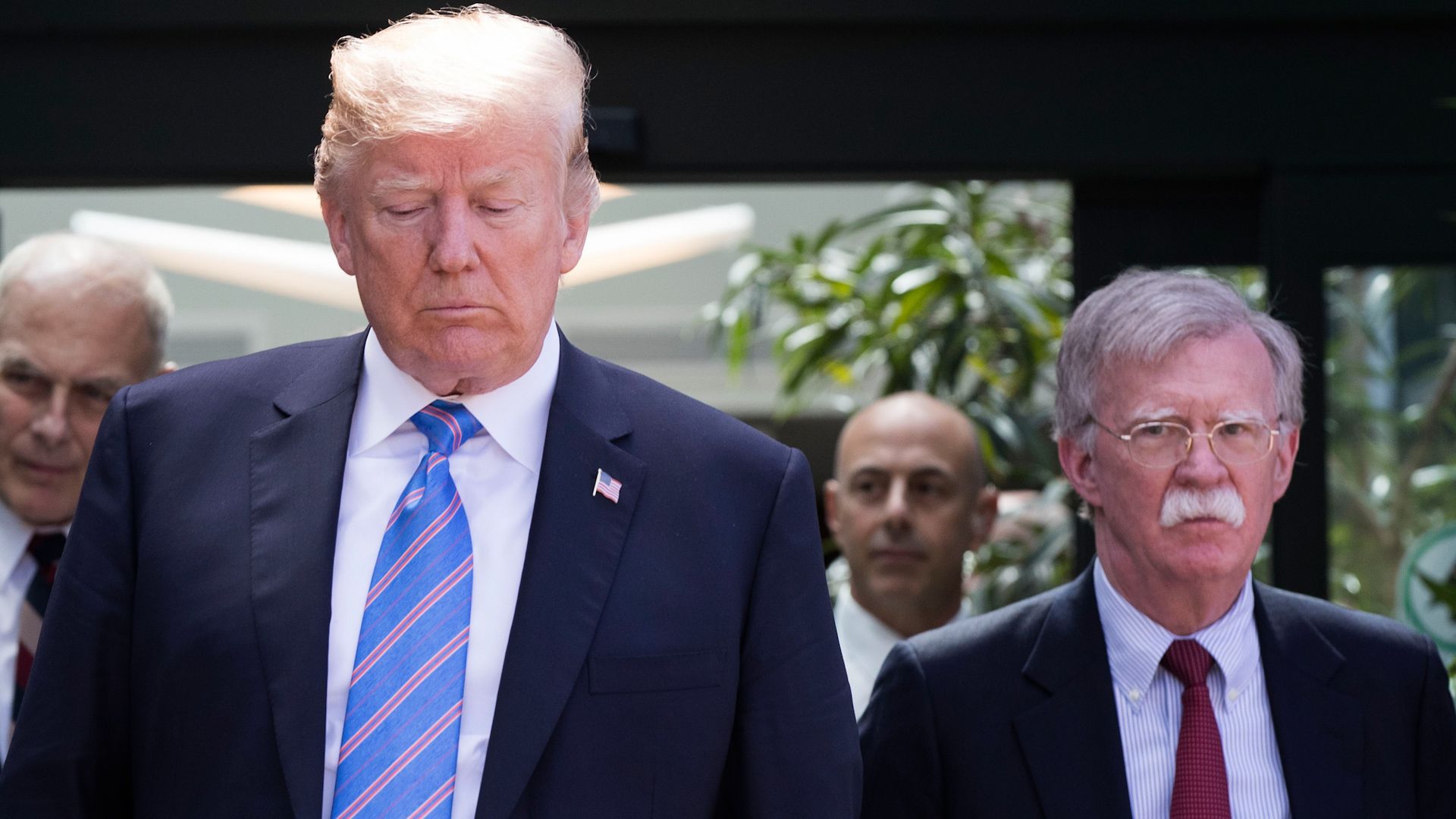
Trump tells Grassley to tell Democrats 'go to HELL' over blocked judicial nominees in Senate
Entities mentioned:
- Donald Trump: Power, Control, Indignation
- Chuck Grassley: Duty, Loyalty, Wariness
- Senate Democrats: Control, Resistance, Power
- Alina Habba: Ambition, Professional pride, Self-preservation
- Judge Matthew Brann: Justice, Duty, Professional pride
Article Assessment:
Credibility Score: 70/100
Bias Rating: 55/100 (Center)
Sentiment Score: 30/100
Authoritarianism Risk: 65/100 (Authoritarian Tendencies)
Bias Analysis:
The article presents multiple viewpoints, including Trump's criticism and Grassley's defense of the blue slip tradition. While it gives more space to Trump's perspective, it also includes factual context about the constitutional process and recent judicial rulings.
Key metric: Judicial Branch Appointments
As a social scientist, I analyze that this article highlights a growing tension between executive power and Senate traditions in the judicial appointment process. Trump's frustration with the 'blue slip' custom reflects a broader struggle for control over the judiciary, which has significant implications for the balance of power in the US government. The slowdown in judicial appointments during Trump's current term, compared to his first, indicates a shift in the political landscape and the effectiveness of opposition tactics. This conflict could lead to further polarization in the appointment process and potentially alter long-standing Senate norms, affecting the composition and perceived legitimacy of the federal judiciary in the long term.

Trump's week shaped by crime agenda, potential guard deployment to Chicago
Entities mentioned:
- Donald Trump: Power, Control, Influence
- Pam Bondi: Duty, Justice, Professional pride
- Brandon Johnson: Self-preservation, Righteousness, Indignation
- J.B. Pritzker: Duty, Self-preservation, Wariness
- Wes Moore: Duty, Security, Cooperation
- Muriel Bowser: Duty, Security, Self-preservation
Article Assessment:
Credibility Score: 70/100
Bias Rating: 55/100 (Center)
Sentiment Score: 35/100
Authoritarianism Risk: 65/100 (Authoritarian Tendencies)
Bias Analysis:
The article presents multiple viewpoints, including Trump's statements and responses from Democratic leaders. While it leans slightly towards critiquing Trump's approach, it maintains a relatively balanced presentation of facts and perspectives.
Key metric: Crime Rate in Major Cities
As a social scientist, I analyze that this article highlights President Trump's focus on crime reduction in major U.S. cities, particularly Chicago and Washington D.C., through the potential deployment of National Guard troops and increased federal law enforcement presence. This approach reflects a centralized, federal-level intervention in local matters, which could impact crime rates but also raises concerns about federal overreach and political motivations. The President's rhetoric and actions suggest a belief that forceful intervention can quickly reduce crime, but this approach may overlook complex socio-economic factors contributing to urban crime. The resistance from local Democratic leaders indicates a political divide in approaches to public safety and federalism. This conflict could affect the implementation and effectiveness of crime reduction strategies, potentially impacting the key metric of crime rates in major cities.

FBI raid of John Bolton's home reportedly linked to classified documents probe
Entities mentioned:
- John Bolton: Self-preservation, Influence, Recognition
- FBI: Justice, Duty, Professional pride
- Donald Trump: Revenge, Power, Control
- Kash Patel: Duty, Loyalty, Professional pride
- Dan Bongino: Justice, Duty, Professional pride
- JD Vance: Loyalty, Duty, Influence
Article Assessment:
Credibility Score: 65/100
Bias Rating: 55/100 (Center)
Sentiment Score: 30/100
Authoritarianism Risk: 45/100 (Mixed/Neutral)
Bias Analysis:
The article presents multiple viewpoints and sources, including both pro-Trump and anti-Trump perspectives. However, there's a slight lean towards emphasizing Trump's negative comments about Bolton, which could be seen as slightly center-right in framing.
Key metric: Government Transparency and Accountability
As a social scientist, I analyze that this article highlights ongoing tensions between political figures and government institutions, particularly concerning the handling of classified information. The raid on John Bolton's properties suggests a continued focus on document security and potential mishandling of sensitive information by former officials. This event may impact public perception of government transparency and accountability, as it demonstrates that even high-ranking former officials are subject to investigation. The involvement of the FBI and the public statements by current administration officials underscore the seriousness of the matter. However, the political context, including Bolton's criticized relationship with Trump, adds complexity to the interpretation of these events. This situation may further polarize public opinion on government institutions and their impartiality in conducting investigations, potentially affecting trust in these institutions.

Rhode Island prosecutor in viral arrest video placed on unpaid leave, job future unclear
Entities mentioned:
- Devon Flanagan: Self-preservation, Power, Pride
- Peter Neronha: Professional pride, Duty, Control
- Rhode Island Attorney General's office: Justice, Professional pride, Control
- New Port Police Department: Duty, Justice, Control
Article Assessment:
Credibility Score: 75/100
Bias Rating: 50/100 (Center)
Sentiment Score: 30/100
Authoritarianism Risk: 25/100 (Generally Democratic)
Bias Analysis:
The article presents multiple perspectives, including direct quotes from the Attorney General and details of the incident. It maintains a relatively neutral tone, presenting facts without overtly favoring any particular viewpoint.
Key metric: Public Trust in Legal Institutions
As a social scientist, I analyze that this incident significantly impacts public trust in legal institutions. The behavior of a high-ranking legal professional abusing her position undermines the credibility of the justice system. The Attorney General's response, while acknowledging the severity, also reveals the challenges in maintaining a competent workforce, potentially affecting public perception of the office's integrity. This event may lead to increased scrutiny of legal professionals and demands for accountability, potentially resulting in policy changes or increased oversight within the Attorney General's office.

France summons US ambassador Charles Kushner over antisemitism allegations
Entities mentioned:
- France: Indignation, Justice, Moral outrage
- United States: Self-preservation, Influence, Control
- Charles Kushner: Duty, Self-preservation, Loyalty
Article Assessment:
Credibility Score: 70/100
Bias Rating: 50/100 (Center)
Sentiment Score: 35/100
Authoritarianism Risk: 30/100 (Generally Democratic)
Bias Analysis:
The article presents a factual headline without evident bias in its framing. The limited information provided maintains a neutral tone, not favoring either country's position or providing extensive context that might skew perception.
Key metric: US-France Diplomatic Relations
As a social scientist, I analyze that this incident highlights tensions in US-France relations over the sensitive issue of antisemitism. The summoning of a US ambassador is a significant diplomatic action, indicating France's serious concern about the allegations. This could potentially strain the typically strong alliance between the two nations, affecting cooperation on various international issues. The involvement of a high-profile figure like Charles Kushner adds complexity to the situation, given his connections to the previous US administration. This event may lead to increased scrutiny of both countries' approaches to combating antisemitism and could influence public opinion and policy discussions on both sides of the Atlantic.

Trump says law enforcement crackdown will ‘go on to other places’ during appearance at police facility in DC
Entities mentioned:
- Donald Trump: Power, Control, Recognition
- US Park Police: Duty, Security, Professional pride
- National Guard: Duty, Security, Obligation
- JD Vance: Loyalty, Ambition, Influence
- DC Residents: Freedom, Self-preservation, Indignation
Article Assessment:
Credibility Score: 70/100
Bias Rating: 55/100 (Center)
Sentiment Score: 35/100
Authoritarianism Risk: 65/100 (Authoritarian Tendencies)
Bias Analysis:
The article presents multiple viewpoints, including Trump's statements, opposition from DC residents, and critical perspectives. However, it leans slightly towards emphasizing concerns about the federal intervention, potentially reflecting a slight center-left bias.
Key metric: Public Trust in Government
As a social scientist, I analyze that this article highlights a significant tension between federal authority and local governance in Washington, DC. The expansion of federal law enforcement presence, including the National Guard, into city affairs without local support (79% opposition) indicates a potential erosion of public trust in government. This action, framed as a safety measure by the administration, is perceived differently by residents, suggesting a disconnect between federal intentions and local desires. The potential expansion to other cities could further strain federal-local relations and impact democratic norms, particularly in areas with strong local governance traditions. The emphasis on clearing homeless encampments without clear alternatives also raises concerns about social policy approaches and their impact on vulnerable populations.

The fight over California redistricting enters new phase
Entities mentioned:
- California Democrats: Power, Control, Influence
- Gov. Gavin Newsom: Ambition, Power, Influence
- President Donald Trump: Power, Control, Influence
- Republicans: Power, Control, Self-preservation
- Arnold Schwarzenegger: Legacy, Pride, Righteousness
- Charles Munger Jr.: Justice, Influence, Legacy
- Kevin McCarthy: Power, Loyalty, Self-preservation
- Barack Obama: Influence, Legacy, Righteousness
Article Assessment:
Credibility Score: 75/100
Bias Rating: 45/100 (Center)
Sentiment Score: 35/100
Authoritarianism Risk: 55/100 (Mixed/Neutral)
Bias Analysis:
The article presents multiple viewpoints and includes quotes from both Democratic and Republican sources. While it focuses more on Democratic efforts, it also covers Republican opposition and strategies, maintaining a relatively balanced approach.
Key metric: Electoral Integrity
As a social scientist, I analyze that this article highlights a significant battle over redistricting in California, which could have far-reaching implications for the balance of power in the U.S. House of Representatives. The proposed mid-decade redistricting by Democrats, led by Governor Newsom, is framed as a response to Republican efforts in other states, particularly Texas. This struggle underscores the intense partisan competition for control of the House and raises questions about the integrity of the electoral process. The involvement of high-profile figures from both parties, substantial financial commitments, and the compressed timeline all point to the high stakes of this issue. The potential impact on Electoral Integrity is substantial, as it challenges established norms around redistricting processes and could set a precedent for other states to follow suit, potentially leading to increased partisan gerrymandering and undermining public trust in fair representation.

‘Keeping it totally open’: Trump says he supports Justice Department sending Epstein files to House Oversight panel
Entities mentioned:
- Donald Trump: Self-preservation, Control, Influence
- Justice Department: Duty, Transparency, Justice
- House Oversight Committee: Justice, Transparency, Duty
- Jeffrey Epstein: Power, Control, Self-preservation
- Pam Bondi: Duty, Loyalty, Professional pride
- James Comer: Transparency, Justice, Duty
- Mike Johnson: Caution, Control, Political calculation
Article Assessment:
Credibility Score: 70/100
Bias Rating: 55/100 (Center)
Sentiment Score: 45/100
Authoritarianism Risk: 30/100 (Generally Democratic)
Bias Analysis:
The article presents multiple perspectives, including Trump's views and the committee's approach, indicating an attempt at balanced reporting. However, the inclusion of Trump's 'Democrat hoax' comment without immediate fact-checking slightly tilts the narrative.
Key metric: Government Transparency and Accountability
As a social scientist, I analyze that this article highlights the complex interplay between government transparency, political motivations, and the protection of sensitive information. The release of the Epstein files represents a significant test of the balance between public interest and individual privacy. Trump's support for transparency, while simultaneously dismissing the issue as a 'Democrat hoax,' reveals the politicization of the matter. The House Oversight Committee's approach demonstrates a cautious stance, prioritizing victim protection while aiming for transparency. This situation impacts government accountability by potentially exposing connections between high-profile individuals and Epstein, which could have far-reaching political implications. The delay in releasing the files and the careful review process indicate the sensitive nature of the information and its potential to affect public trust in institutions and political figures.

FBI conducts search at Trump critic John Bolton’s home and office as part of resumed national security investigation
Entities mentioned:
- John Bolton: Self-preservation, Professional pride, Righteousness
- Donald Trump: Power, Control, Revenge
- FBI: Duty, Justice, Control
- Justice Department: Justice, Duty, Control
- JD Vance: Loyalty, Duty, Influence
- Kash Patel: Power, Loyalty, Control
Article Assessment:
Credibility Score: 65/100
Bias Rating: 55/100 (Center)
Sentiment Score: 30/100
Authoritarianism Risk: 65/100 (Authoritarian Tendencies)
Bias Analysis:
The article presents multiple perspectives and cites various sources, including both Trump administration officials and critics. However, there's a slight lean towards framing the event as potentially politically motivated, which may reflect a centrist to slightly left-leaning bias.
Key metric: Rule of Law Index
As a social scientist, I analyze that this article highlights a concerning trend of potential politicization of law enforcement agencies. The renewed investigation into John Bolton, a vocal critic of President Trump, raises questions about the use of government power against political opponents. This action could significantly impact the Rule of Law Index, particularly in areas of constraints on government powers and absence of corruption. The public nature of the search and the social media activity of top FBI officials further suggest a departure from standard investigative practices, potentially eroding public trust in law enforcement institutions. The timing and context of this investigation, following Bolton's criticism of Trump's foreign policy, particularly regarding Russia and Ukraine, add to concerns about potential abuse of power and selective enforcement of laws.

READ: Transcript of the Justice Department’s interview with Ghislaine Maxwell
Entities mentioned:
- Department of Justice: Justice, Duty, Transparency
- Todd Blanche: Professional pride, Duty, Curiosity
- Ghislaine Maxwell: Self-preservation, Obligation, Wariness
- Jeffrey Epstein: Power, Greed, Control
- Donald Trump: Power, Influence, Recognition
Article Assessment:
Credibility Score: 75/100
Bias Rating: 50/100 (Center)
Sentiment Score: 45/100
Authoritarianism Risk: 25/100 (Generally Democratic)
Bias Analysis:
The article presents factual information without apparent partisan slant. It neutrally reports on the release of the transcript and the circumstances surrounding the interview, avoiding inflammatory language or political commentary.
Key metric: Public Trust in Government Institutions
As a social scientist, I analyze that this release of the interview transcript with Ghislaine Maxwell by the Department of Justice is likely to have a significant impact on public trust in government institutions. The transparency shown by releasing this document may help to improve public perception of the DOJ's commitment to accountability. However, the limited immunity granted to Maxwell and her subsequent transfer to a minimum-security prison may be viewed skeptically by some, potentially undermining trust. The involvement of a former Trump lawyer in the interview adds a political dimension that could further complicate public perception, depending on how it's interpreted across the political spectrum.